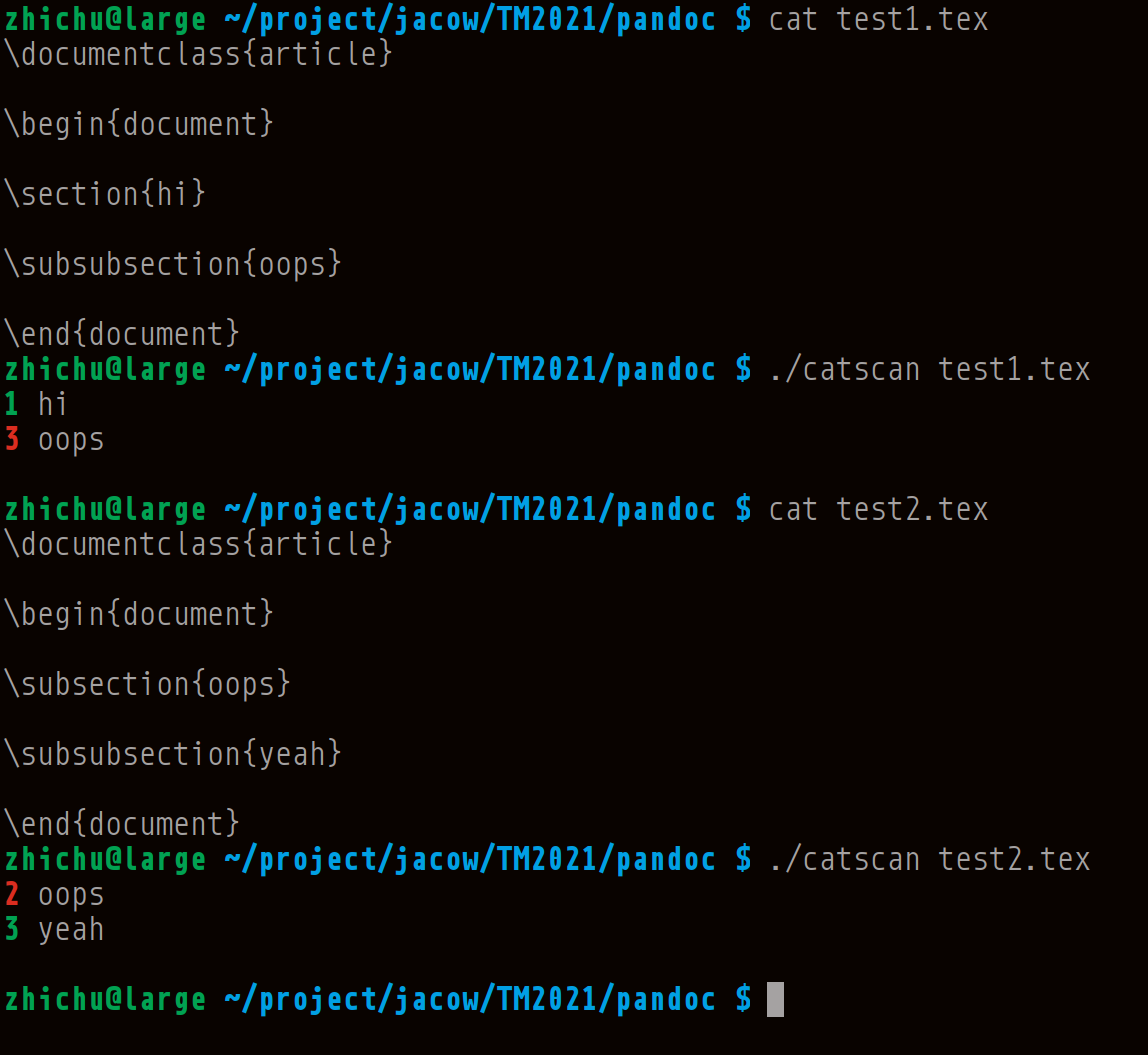Futuristic Review of JACoW Editing
A.K.A., how to lure innocent people with highfalutin jargons
ℤhichu ℂhen (ℝoss)
17 Dec, 2021
Proposal Report on JACoW Evolution
Disclaimer
- These slides speak only for the speaker, who has been an author for roughly twenty years and an editor for three years.
- Some opinions are taken from my friends. If you find some contents funny, it’s because they came from my friends.
- This is not an espionage to replace Human race with Cylons.
Overview
- What do authors and editors want
- A new scheme & the implementation
- Futuristic future work
- Summary
As an Author
- Nice web interface.
- Support for various formats.
- Intuitive visualisation between revisions.
- Versatile ways to download interested papers.
As an Editor
- Standardise inputs from authors.
- Big screen with more contents and preferably bigger font sizes.
- Manoeuvre changes.
- Avoid duplicating jobs.
- Reference format is a curse.
Efforts for Now
- Provide templates for authors and hope they’ll follow with crossed fingers.
- Lucky for
LaTeX, we can use a decent editor with regular expression support. Cat Scan Toolsby David Button.https://ref.ipac19.org/or directly go to the homepage for the reference if it’s aJACoWpublication.- Sometimes, they do not give the same entry.
- Sharp eyes, steady hands, and QA.
The Current Workflow of a Conference
- Install
SPMS - Registration
- Abstract submission
- Booklet
- Paper submission
- Editing/QA/Author-Title-Check…
- Proceedings
Pre-Conference
Editing
Some people are colourblind. Maybe with another colour scheme?
A New Design
Taking advantage of the migration of JPSP, and the software development during the past decades, I see an opportunity to design a different back-end:
- Papers uploaded by authors/editors are converted to Abstract Syntactic Trees (ASTs)
- ASTs are converted to various formats:
Word,OpenDocument,LaTeX,Markdown… - Each (or perhaps only the original one) upload is checked automatically for Author-Title-Check, syntactic errors, etc.
- Each change is monitored to be merged
Back-end
A Preliminary pandoc Filter Example
{-# LANGUAGE OverloadedStrings #-}
import Data.Text (pack,unpack,Text)
import Text.Pandoc.Builder
import Text.Pandoc
import Text.Pandoc.Walk
import System.Environment (getArgs)
purely :: (b -> PandocPure a) -> b -> a
purely f = either (error . show) id . runPure . f
latex :: Text -> Pandoc
latex = purely $ readLaTeX def{
readerExtensions = getDefaultExtensions "latex" }
data Section = Section
{ level :: Int
, attr :: String
, title :: String
}
createSections :: Pandoc -> [Section]
createSections = query mkSec
where mkSec (Header n _ inline) = [ Section
{ level=n
, attr=""
, title=getPlain inline
}]
mkSec _ = []
getPlain :: [Inline] -> String
getPlain [] = ""
getPlain (x:xs) = stripeFrom x <> getPlain xs
where stripeFrom (Str strs ) = unpack strs
stripeFrom (Code _ strs ) = unpack strs
stripeFrom (Math _ strs ) = unpack strs
stripeFrom (RawInline _ strs ) = unpack strs
stripeFrom (Emph strs ) = getPlain strs
stripeFrom (Underline strs ) = getPlain strs
stripeFrom (Strong strs ) = getPlain strs
stripeFrom (Strikeout strs ) = getPlain strs
stripeFrom (Superscript strs ) = getPlain strs
stripeFrom (Subscript strs ) = getPlain strs
stripeFrom (SmallCaps strs ) = getPlain strs
stripeFrom (Quoted _ strs ) = getPlain strs
stripeFrom (Cite _ strs ) = getPlain strs
stripeFrom (Span _ strs ) = getPlain strs
stripeFrom (Link _ strs _) = getPlain strs
stripeFrom (Image _ strs _) = getPlain strs
stripeFrom Space = " "
stripeFrom _ = ""
main :: IO ()
main = do
(fileName:_) <- getArgs
src <- readFile fileName
let secs = createSections $ latex $ pack src
putStrLn $ printResult $ getContents $ secs
where getLevel (Section n _ str) = n
getLevels = map getLevel
getTitle (Section n attr str) = attr <> (show n) <> resetColor <> " " <> str
diffl1 xs = zipWith (-) xs (0:xs)
getColor n = if n>1 then boldRed else boldGreen
boldRed = "\x1b[1;31m"
boldGreen = "\x1b[1;32m"
resetColor = "\x1b[0m"
convertPretty (k, (Section n _ str)) = Section n (getColor k) str
getContents sec = map convertPretty $ zip (diffl1 $ getLevels $ sec) sec
printResult = unlines . map getTitleResults

Future Works (Phase II)
Patch Theory
darcsalready takes care of that. I don’t want to go too deep. If interested, please refer to
Future Online Interface
Future Online Publishing
In addition to the good old pdf files, an HTML output is also nice.
The
HTMLis ready as soon as the.mdis available. No extra work needed.Hyperlinks, or fancy interactive graphics with javascript.
Meta goodies: times been cited, view similar papers by keywords/categories, follow-up works, share in Tweeter…
With the plugin feature of
pandoc, we can use code fences to post-process the code to generate outputs/figures online. Especially useful for Wikis.